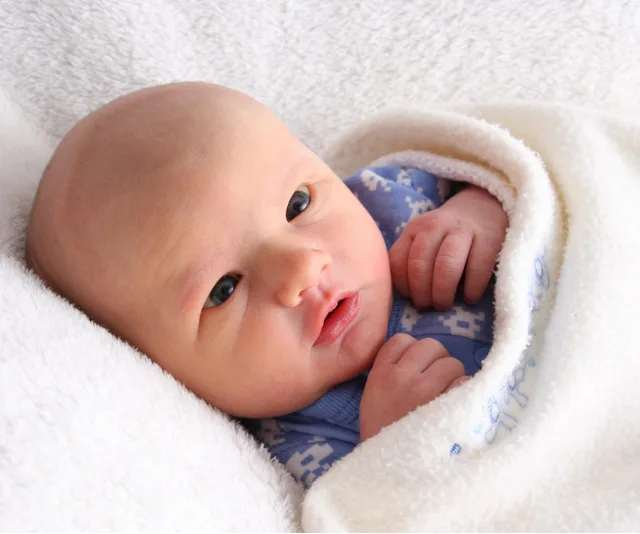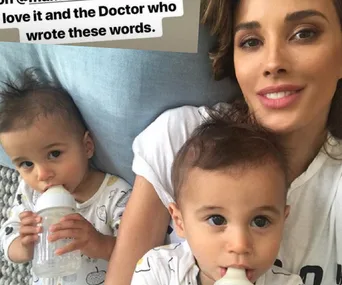In some parts of Australia, whooping cough cases have hit a five year high, a concerning fact in the lead up to Christmas as we get ready to travel and visit family.
With complications from this highly contagious disease being so severe, particularly for the very young and the elderly, health professionals are urging all Australians to ensure they are doing all they can to remain protected.
Whooping cough (pertussis) is always circulating in the community, with epidemics occurring in Australia every three to four years. The last really big outbreak in Australia was in 2011 which saw more than 38,000 cases reported to public health units.
So far in 2018 there have been almost 10,000 confirmed cases of whooping cough reported nationally. However, it should be noted that many cases go undiagnosed and unreported for various reasons. One being that the symptoms are not always easy to recognise. You can read more about that below.

Whooping cough is spread by droplets when an infected person coughs or sneezes, or via direct contact with secretions from the nose or throat. (Image: Getty Images)
Staying protected from whooping cough in the lead up to Christmas
Dr Rachel Heap, who recently gained fame when an immunisation meme she made went viral, says that ensuring your vaccinations are up to date is the surest way to stay safe during an outbreak.
“The safest and most effective way to protect your kids and your family from pertussis is to get vaccinated according to the schedule,” she tells Now to Love.
“To protect yourselves, your family, and your community from whooping cough over these holidays please make sure that you are all up to date with your vaccinations.
“That means the kids should get their vaccines according to the schedule, pregnant women make sure they are get a third trimester booster during each and every pregnancy, and all other adults ask for a booster at least every 10 years.
“And while you’re there, ask your practice nurse or GP if there are any others that you might also be due. Also, if you or anyone you’re travelling with think they ‘might be coming down with something’ please bear in mind that something that might be trivial for you might be very serious for the very young, the elderly or otherwise frail.”

Intensive care doctor, Rach Heap urges everyone to get vaccinated and get boosters. (Image: Supplied)
What you need to know about whooping cough, at a glance
Herd immunity – where most of the community is vaccinated – offers the best chance of keeping contagious diseases, like whooping cough, at bay.
Whooping cough starts like a cold and progresses to bouts of coughing that can last for many weeks. Older children may just have a cough that is persistent and may be worse at night.
The current whooping cough vaccine is approximately 80 per cent effective, however it’s effectiveness is only around five-to-eight years. Most adults are no longer protected by this vaccine and regular boosters are recommended. All healthcare workers, childcare workers, parents, grandparents and carers of infants should receive boosters.
Whooping cough kills. The world Health organisation reported 89,000 deaths in 2017 alone. Young children (about 0.8 per cent of infected children under six months of age will pass away) are particularly vulnerable, with an estimated 11 childhood deaths in Australia since 2009.
Babies can not receive their first whooping cough vaccination until they are six weeks old and are not fully immunised until they have had three doses, which happens by six months of age. All adults in contact with a new baby should be asked to get a booster.
Whooping cough boosters are now free for pregnant women in their third trimester in Australia, and recommended in every single pregnancy. If pregnant women are vaccinated, their antibodies pass over to their baby whilst still in the womb, and they are thus born protected.
Post continues after video …
Catherine Hughes’ son, Riley Hughes passed away at just four weeks old after he contracted whooping cough.
His devastating last days have been documented through the ‘Light for Riley’ project where his parents, Catherine and Greg have been instrumental in the ‘No Jab, No Pay’ policy and the introduction of a government supported third trimester maternal vaccinations to give newborn babies better protection from this horrific disease.
For Catherine, the message these holidays is clear, “It’s so, so important that if you’re planning on spending time around young babies, that you’re up to date on your whooping cough vaccine. And if you’ve got any type of cough – keep away!
“Most babies wind up hospitalised from this disease if they contract it, and some die. It’s also really important that Mums have their third trimester booster to help protect their babies, especially with all this whooping cough around. Watching my newborn son die from whooping cough was the worst experience of my life and I wouldn’t wish whooping cough on anybody.

Riley Hughes passed away at just 32 days old after contracting whooping cough before he could be protected by vaccination.
Whooping cough is not always easy to recognise
A case of whooping cough will generally begin quite similar to a cold, with a runny or blocked nose, a mild fever and tiredness and aches.
A cough can develop quite early in the illness and usually gets worse over time, leading to uncontrollable coughing fits which can also cause the person to vomit or choke.
The cough can last up to three months, and also can cause sleep disturbance due to the violent coughing. The cough can be severe enough to fracture ribs in both children and adults. Other side effects of the cough can include incontinence and burst blood vessels.
“If you’re unsure whether your kids are up to date with their whooping cough vaccines, double-check with your GP. While the vaccines don’t offer absolute protection, and there’s still a chance your child could contract whooping cough, at least you know you’ve done everything you possibly can to protect them. And that’s what our job is as parents – to protect them, and that includes vaccinating them,” says Catherine.

